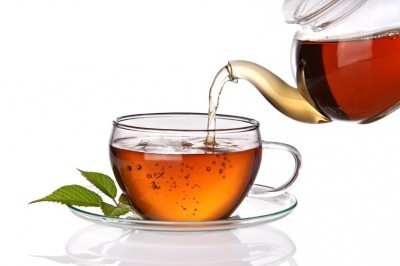Green tea may lower blood pressure - but only for non-smokers

The researchers from the University of Adelaidein Australia and Jiangsu Provincial Centre for Disease Control and Prevention in China, looked at the impact of black and green tea consumption on blood pressure for 1109 Chinese men and women between 2002 and 2007 as part of a wider Jiangsu Nutrition Study.
They found that those with daily total tea and green tea consumption of at least 10g had a 2.41 mmHg (millimeters of mercury) and 3.68 mmHg smaller increase of diastolic blood pressure, respectively, compared to those who did not consume tea. However this correlation was not seen for systolic blood pressure (SBP) or with black tea consumption.
The research, published in the Nutrition Journal, found a significant interaction between smoking and total tea/green tea consumption and diastolic blood pressure (DBP) change.
"In this population study, we found an inverse association between green but not black tea consumption and five-year change in both SBP and DBP. The beneficial effect of high green tea consumption on both SBP and DBP occurred only in non-smokers and in the case of SBP only in those without abdominal obesity. There was a clear dose–response relationship between green tea consumption and DBP change," the researchers wrote.
They said previous data on the association between tea consumption and changes in blood pressure had proved inconsistent.
Green light for green tea
The researchers put this down to tea's flavinoid, anti-oxidant and polyphenol content.
They conceded that the study was limited by its lack of a base line for the participants' tea consumption, meaning changes from before the study could not be tracked. However they hypothesised that since other lifestyle factors like smoking and alcohol consumption appeared to be quite stable in the study, it was possible to assume that tea drinking habits were also relatively stable over the five-year period.
Source: Nutrition Journal
Published online ahead of print, doi:10.1186/1475-2891-13-98
“Tea consumption is inversely related to 5-year blood pressure change among adults in Jiangsu, China: a cross-sectional study”
Authors: X. Tong, A.W. Taylor, L. Giles, G. A Wittert and Z. Shi















